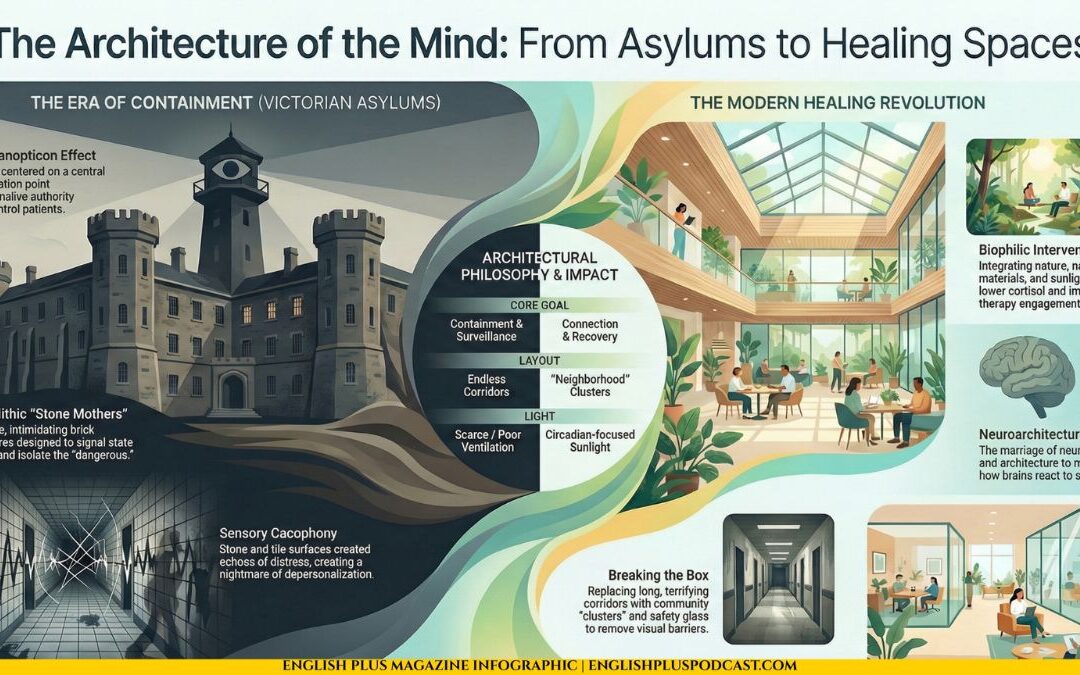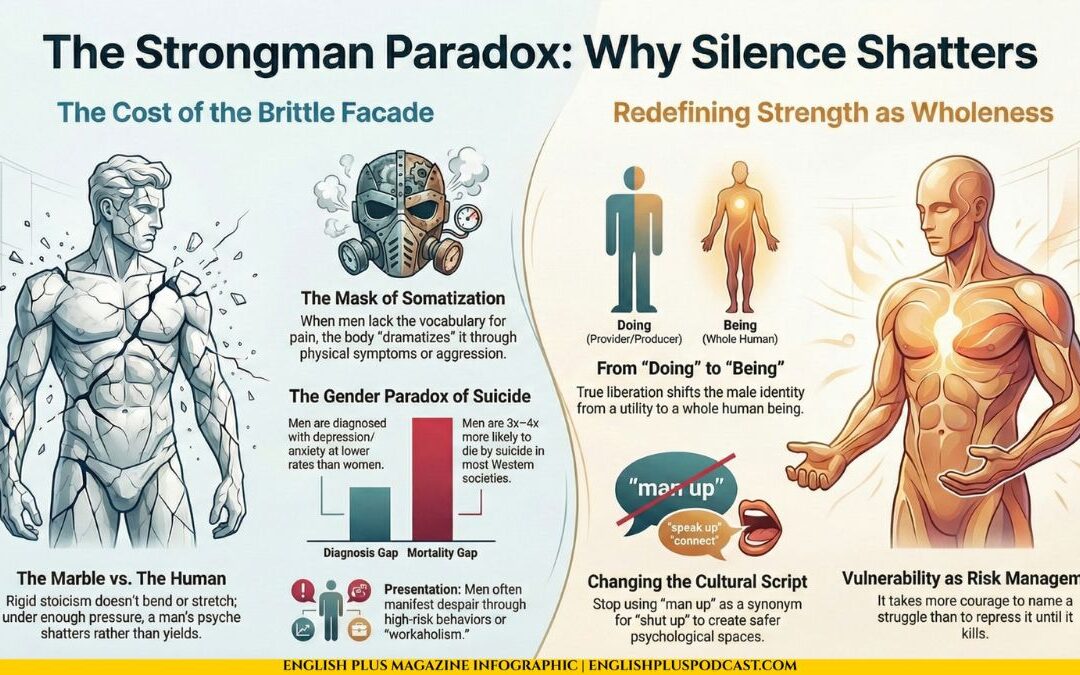Practice Worksheet
Transcript
Disclaimer
I am using an automatic transcript service as it is not possible for me to do it on my own and I cannot afford human transcription at the moment. The service claims to have about 95% accuracy, which means there will still be some mistakes, so my apologies for having a less than perfect transcript, but I hope I can afford human transcription soon and I will solve this problem. However, the service is pretty good, and the transcript is almost perfect.
Transcript
Welcome to a new episode from English plus podcast. This episode is business English, intermediate two. And in this episode, we will talk about ways of working. We will talk about working hours. We will talk about words you can use to describe your work depending on how you feel about your work. And then we will talk about words we can use to describe the nature of our work.
[00:00:29] So without further ado, let’s start with this episode, but first let me remind you that you can find the transcript of this episode in a link. I will leave in the description and you can also support English plus podcasts by becoming a patron of the show on Patreon. You can also find a link to that in the description.
[00:00:46] When you support English plus podcasts, you will also get the exclusive PDF practice worksheets that come with every single episode we launch every day. So if you want to support us, and if you want to invest in your English learning, Become a patron of the show on Patreon. So now without further ado, let’s start with our lesson for today, ways of working now, first, we’ll take a look at the accounts of four different people talking about their working hours, and we will learn different ways to talk about different working hours that we may have.
[00:01:17] So let’s start with the first one. I’m an office worker in an insurance company. It’s a nine to five job with regular working hours. I need to swipe card to get into the office. The work isn’t very interesting, like to be able to go home at a reasonable time. Now, here we have a couple of words we need to focus on.
[00:01:39] First, this person said I’m an office worker and an office worker is a person who works in an office, for example, carrying out clerical or administrative work for an organization. So it might not be very interesting, but it is necessary to have people work as office workers. And here, this person continued by saying it’s a nine to five job.
[00:01:59] It’s a nine to five job and continues with saying with regular working hours, actually nine to five job is a job with regular working hours. These are the regular working hours later on. We will see that we have other than the regular working hours. A nine to five job you might say, Oh, I start at 10 and I finish at six.
[00:02:20] Can I say attend to six job? Of course you can say that. But a nine to five job is a common word. People use to talk about jobs with regular working hours. That’s the meaning of nine to five. And here, the person also said, I need to swipe card to get into the office now to swipe card, you have different ways to get into a place and get out of a place.
[00:02:44] Sometimes we can say clock in and clock out. It doesn’t matter whether you have a card or something. Old fashioned card machine or a swipe card. And sometimes you may be using your fingerprint. It doesn’t matter what you do, but that means you have to clock in and clock out. So that is about the first person we have here today.
[00:03:05] We learned the words, office worker nine to five job and regular working hours and swipe card to get into the office. So now let’s take a look at the second person I’m in computer programming. There’s a system of flexi time in my company, which means we can work when we want within certain limits. We can start at any time until 11 and finish as early as three, as long as we do enough hours each month.
[00:03:34] It’s ideal for me as I have two young children. So this person is talking about flexitime here and in the description she gave us. She explained what flexi time is like flexi time doesn’t mean that you can come and go anytime you want. No, of course there are limits. And usually they tell you that you can start no later than this time in the case here no later than 11.
[00:03:57] And you can finish as early as three. So you can just leave before three, but you can leave as early as three. So technically you can come at 11 and leave at three, but provided that the work is done or like in this case here, as long as we do enough hours each month. So each company, when they have flexi time, they have their own system.
[00:04:20] But that is the meaning of flexi time. And just note here that in British English, we say flexi time in American English, we usually say flex time, not flexi. So that being said, let’s move on to talk about the next person who works in a car plant. I work in shifts and I have to clock on and clock off at the beginning.
[00:04:40] And end of every shift I may be on the day shift one week and the night shift the next week, it’s difficult changing from one shift to another. When I changed shifts, I have problems changing to a new routine for sleeping and eating. When the company is selling lots of cars, they ask us to work overtime more hours than usual for more money.
[00:05:01] So here we have a couple of words we need to talk about. We have first the word shift. Now, what is the meaning of shift here? Especially in factories and in places where they work 24 hours a day, they have different shifts. Because the company, especially if it’s a factory, like in this example, a car factory, it never stops.
[00:05:22] It works 24 seven. So they need to bring different workers at different times of day to keep the factory operational and these different times they call them shifts. And sometimes when you work in places like that, your shift may change from the day shift to the night shift, et cetera. And here, I want you to notice that this person used clock on and clock off, but we said earlier, clock in and clock out.
[00:05:51] Well, there’s a slight difference between clock in and clock out. When you clock in at work, you arrive there or put a special card into a device to show what time you arrived. So it’s electronic, but when you clock on that’s the old fashioned way, and it is still being used in a lot of factories when workers.
[00:06:10] Clock on at a factory or office, they put a special card into a device to show what time they arrived. So it’s a kind of a device you kind of punch your card through or something. And that clocks on. The card, but to be honest, doesn’t matter, you can still say clock in and clock out because that’s in general what it means, but we’re just trying to show that we have other phrasal verbs.
[00:06:32] So if you come across them, don’t think that they’re wrong. They can be used as well. So here, as we said earlier, we talked about shifts and we said it could be the day shift or the night shift. And then the man continued talking and said sometimes when the company is selling lots of cars, they ask us to work overtime and he explained it himself by saying more hours than usual for more money.
[00:06:57] So when you are asked to work overtime, you’re asked to work more hours than usual for more money. So that is the meaning of overtime. And now let’s talk about our fourth person here, who is a commercial artist in an advertising agency. I’m a commercial artist in an advertising agency, unlike most other people in my department who commute to work every day.
[00:07:21] I work from home and avoid the long journeys that some commuters experience every day. That’s the benefit of teleworking or telecommuting working from home and using the computer and phone to communicate with other people. So here, mainly we’re talking about commuting to work or telecommuting. So here, the commercial artists said that unlike most other people in my department who commute to work everyday, they go, they’re using transportation, any kind of transportation that can be the bus, the train, or their own cars doesn’t matter.
[00:07:53] That means you physically go from where you live. To where you work every day out here. He said, I work from home and I avoid the long journeys that some commuters experience everyday and commuters obviously are the people who commute to work. Mostly every day and here he continued on by saying that’s the benefit of teleworking teleworking, T E L E working or telecommuting telecommuting as well means working from home and using the computer and phone to communicate with other people.
[00:08:27] So that being said, we talked about a couple of words you can use to describe. The working hours and the way you work, whether you have shifts, you have to clock in or out, you have to swipe card, you have a nine to five job you commute to work, or you telecommute, et cetera. We talked about all these, and now we will move on to talk about something very important.
[00:08:49] And that is how to describe your work. And here we will talk about some words you can use based on the feeling or the way you think your job or work is. Now, before we start talking about these words, all these words are used in front of job and work. You can use them as adjectives in front of job and work.
[00:09:08] So let’s start first talking about the words you can use. If the work is interesting and gives you positive feelings, what can you say about that kind of work or job? You can say it’s a satisfying job, stimulating job or work, fascinating work or job. Of course. Exciting. So you can use these four words, satisfying, stimulating, fascinating or exciting.
[00:09:34] There are some differences, of course, in the meanings of these words, satisfying, you’re satisfied with the work you get everything you want, or you need even sometimes more stimulating. There’s always something that drives you to do the work. There’s always something motivating in this kind of work.
[00:09:51] Fascinating. You’re just saying that it’s fantastic. For whatever reasons you might have exciting. It’s the same. You’re always excited. You are never bored in this kind of work or job, but what if the work is not interesting? What if it is just the opposite? What do we say? Then you can use the words dull.
[00:10:09] Boring uninteresting or unstimulating. And that’s just the opposite. If your work is not fascinating, it can be dull or boring. Now, sometimes it’s not either, or it’s not either fascinating or boring now. Sometimes it can be ordinary. It’s not fascinating and it’s not dull. But if we’re talking about the two opposite ends of the way you can use to describe your work, we can use dull and boring to describe your work.
[00:10:36] If it is not that interesting or simply you can say uninteresting or unstimulating. So what if the work involves doing the same things again and again, what do you call this kind of work? Well, you can say repetitive or routine repetitive where you have to repeat the same tasks again and again, and again, do the same things.
[00:10:57] The same goes for routine. You do the same things every day and it becomes boring, but here you want to focus on, it’s not boring in general it’s routine. It’s boring because I do the same things again and again. And finally, how do you describe your work? If it is difficult and makes you tired? You can say the work is tiring.
[00:11:17] It’s actually making you tired. It’s tough. It’s difficult. It’s hard, the same, like tough and difficult. Or you can use the word demanding. It requires a lot of effort and it is tiring. So these words are kind of the same, but you can use these four words to describe your work, if it is difficult and makes you tired.
[00:11:38] And now we arrive to this final point in this episode, and that is to describe the nature of work. Now, when you want to describe the nature of your work, you can say my work involves, or you can talk about it as if you’re talking about your likes or dislikes your preferences and what you enjoy the same way you can say.
[00:11:56] I like I dislike. I prefer, or I enjoy. But if you want to talk about your job, what it evolves, you can say my work involves, and here you can use two different things. You can use nouns. Like when you say my work involves human contact, long hours or teamwork, or you can use. I N G forms. You can say my work involves working with figures.
[00:12:21] My work involves dealing with customers. My work involves solving problems, and of course you can also use the verbs. I like I dislike, prefer or enjoy. With nouns or ING, you can say I enjoy solving problems. I prefer dealing with customers. I like working with figures or I dislike working with figures.
[00:12:43] The same goes for long hours, teamwork and human contact, as we said earlier. So that being said in our business, English intermediate episode today, we learned how to talk about our working hours, how to describe our jobs or work and how to talk about the nature of our work. That’ll be all for today. I want to remind you that you can find the transcript of this episode in a link.
[00:13:03] I will leave in the description. And there’s also another link in the description that will take you to Patreon, where you can support English plus podcast and become a patron of the show. And then you will receive a PDF practice worksheet for every single episode we release every day, that being said, this is Danny your host saying thank you very much for listening to another episode from English plus podcasts.
[00:13:24] I will see you next time.











0 Comments